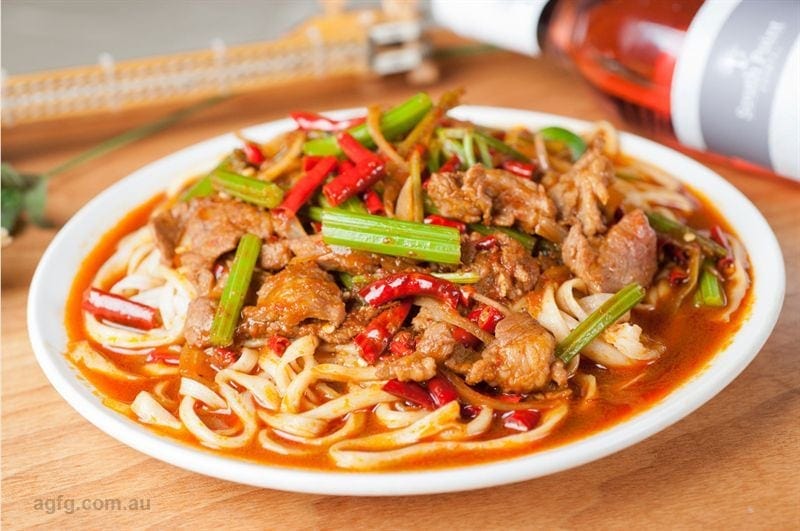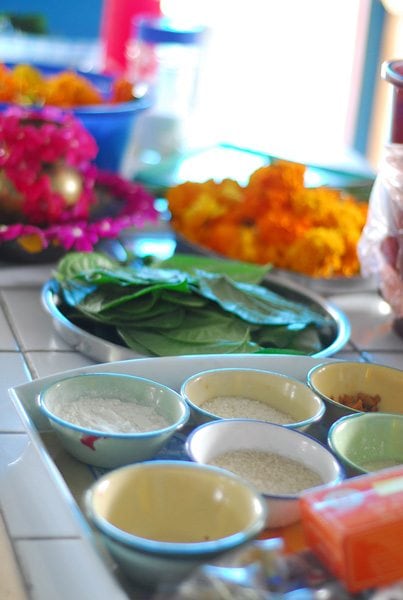Eating Right: Eating Out – A Luxury or a Necessity? by Ustadha Zaynab Ansari
I’ve lately become fascinated with the world of professional cooking and decided to read Anthony Bourdain’s Kitchen Confidential, a behind-the-scenes look at the lives (and characters) of those who work in America’s commercial kitchens. While Bourdain might have done a good job with his Parts Unknown television episode filmed in Gaza, the book that made him famous left me reeling. Granted, the reviews indicate the book is not for the faint-of-heart. Nonetheless, I was stupefied after reading Bourdain’s first-hand descriptions of the actions, behavior, and character of the people cooking the public’s food in restaurants all across the United States (and beyond).
[Developing Hedonism]Although I didn’t finish the book–it was too obscene–I was glad I read it. Everything that Bourdain recounts about the restaurant scene corroborates what the ulema (religious scholars) say about eating in restaurants and why it is a practice that should not become a habit. I finally understood that these ulema aren’t being unnecessarily strict; they have deep insight into the recesses of the Western mind and the dangers of a culture that celebrates hedonism.
[To Eat Out or Not?] Moreover not only do these ulema warn against eating out at general establishments, they even caution against making a habit of frequenting halal restaurants. In doing so, I believe that they are challenging us, as believers, to raise our standards. The underpinning of this challenge is the idea that we should be cautious about what we ingest (food should be halal and tayyib, or lawful and pure) and we should, to the extent possible, endeavor to eat only that food that is prepared by people of dhikr (remembrance of God).
 Now before one scoffs at this position and cites the hectic nature of a fast-paced modern life which precludes women (yes, because even in the twenty-first century women are still tasked with preparing family dinners–let’s be real) from spending much time in the kitchen, let’s consider the wisdom behind this view. It’s actually very profound.
Now before one scoffs at this position and cites the hectic nature of a fast-paced modern life which precludes women (yes, because even in the twenty-first century women are still tasked with preparing family dinners–let’s be real) from spending much time in the kitchen, let’s consider the wisdom behind this view. It’s actually very profound.
First, eating out is a luxury, but we treat it as a necessity. And, sadly, this misplacing of priorities–eating out should be a rare treat, not an everyday occurrence–comes at a considerable cost, particularly for those less fortunate human beings who could benefit from the money we waste on a single outing. For example, one meal at an average (not fancy) restaurant for a family of five could feed an orphan in Africa for an entire month, or provide school supplies to five children in Palestine for an entire year. Consider that the next time you order a round of appetizers for the whole table.
[Spending on the Good] Second–it bears repeating!– eating out is ridiculously expensive. Order a few starters, several entrees, and an assortment of drinks and desserts, and you’ve possibly spent 10-15% of your entire month’s grocery budget on one meal. Now picture doing that several times a week. Imagine if you took all the money you spent eating out and saved it?! Imagine how much debt you could pay off, or necessities you could acquire for your family, or sadaqah (charity) you could give!

Third, be very careful about who is cooking and handling your food. And that is why I’m glad I read Kitchen Confidential. After getting three-quarters of the way through the book, I became too nauseated and had to take it back to the library. I was aghast at what Anthony Bourdain revealed after–no doubt–spending way too much of his own time in what he terms the “culinary underbelly.” The utter moral turpitude and degeneracy of some of the people employed in America’s commercial kitchens is appalling. I won’t go into the details of people’s disgusting predilections or repeat any of the obscenities that fly from their mouths as they prepare the public’s food. Just suffice it to say, we wouldn’t want these people taking out our trash, much less handling the food we put into our bodies and give to our families.
[Nurture Mind, Body & Spirit] Finally, and most importantly, the mind-body-spirit connection is real, and the ulema know this, hence their comprehensive, thought-provoking advice. What we place into our bodies has a definite impact on our hearts, so let’s think before we eat!
Ustadha Zaynab Ansari is a scholar at SeekersHub Global. She answers many questions on our answers blog. You can find more about her here.
